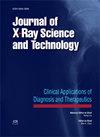A comprehensive guide to content-based image retrieval algorithms with visualsift ensembling.
IF 1.4
3区 医学
Q3 INSTRUMENTS & INSTRUMENTATION
引用次数: 0
Abstract
BACKGROUND Content-based image retrieval (CBIR) systems are vital for managing the large volumes of data produced by medical imaging technologies. They enable efficient retrieval of relevant medical images from extensive databases, supporting clinical diagnosis, treatment planning, and medical research. OBJECTIVE This study aims to enhance CBIR systems' effectiveness in medical image analysis by introducing the VisualSift Ensembling Integration with Attention Mechanisms (VEIAM). VEIAM seeks to improve diagnostic accuracy and retrieval efficiency by integrating robust feature extraction with dynamic attention mechanisms. METHODS VEIAM combines Scale-Invariant Feature Transform (SIFT) with selective attention mechanisms to emphasize crucial regions within medical images dynamically. Implemented in Python, the model integrates seamlessly into existing medical image analysis workflows, providing a robust and accessible tool for clinicians and researchers. RESULTS The proposed VEIAM model demonstrated an impressive accuracy of 97.34% in classifying and retrieving medical images. This performance indicates VEIAM's capability to discern subtle patterns and textures critical for accurate diagnostics. CONCLUSIONS By merging SIFT-based feature extraction with attention processes, VEIAM offers a discriminatively powerful approach to medical image analysis. Its high accuracy and efficiency in retrieving relevant medical images make it a promising tool for enhancing diagnostic processes and supporting medical research in CBIR systems.基于内容的图像检索算法与视觉漂移集合综合指南。
背景基于内容的图像检索(CBIR)系统对管理医疗成像技术产生的大量数据至关重要。本研究旨在通过引入 VisualSift Ensembling Integration with Attention Mechanisms (VEIAM),提高 CBIR 系统在医学图像分析中的有效性。方法VEIAM将规模不变特征变换(SIFT)与选择性注意机制相结合,动态强调医学图像中的关键区域。该模型采用 Python 语言实现,可无缝集成到现有的医学图像分析工作流程中,为临床医生和研究人员提供了一个强大且易于使用的工具。结果提出的 VEIAM 模型在医学图像分类和检索方面的准确率高达 97.34%,令人印象深刻。结论通过将基于 SIFT 的特征提取与注意过程相结合,VEIAM 为医学图像分析提供了一种具有强大判别能力的方法。VEIAM 在检索相关医学图像方面的高准确性和高效率使其成为一种很有前途的工具,可用于增强诊断过程和支持 CBIR 系统中的医学研究。
本文章由计算机程序翻译,如有差异,请以英文原文为准。
求助全文
约1分钟内获得全文
求助全文
来源期刊
CiteScore
4.90
自引率
23.30%
发文量
150
审稿时长
3 months
期刊介绍:
Research areas within the scope of the journal include:
Interaction of x-rays with matter: x-ray phenomena, biological effects of radiation, radiation safety and optical constants
X-ray sources: x-rays from synchrotrons, x-ray lasers, plasmas, and other sources, conventional or unconventional
Optical elements: grazing incidence optics, multilayer mirrors, zone plates, gratings, other diffraction optics
Optical instruments: interferometers, spectrometers, microscopes, telescopes, microprobes

 求助内容:
求助内容: 应助结果提醒方式:
应助结果提醒方式:


